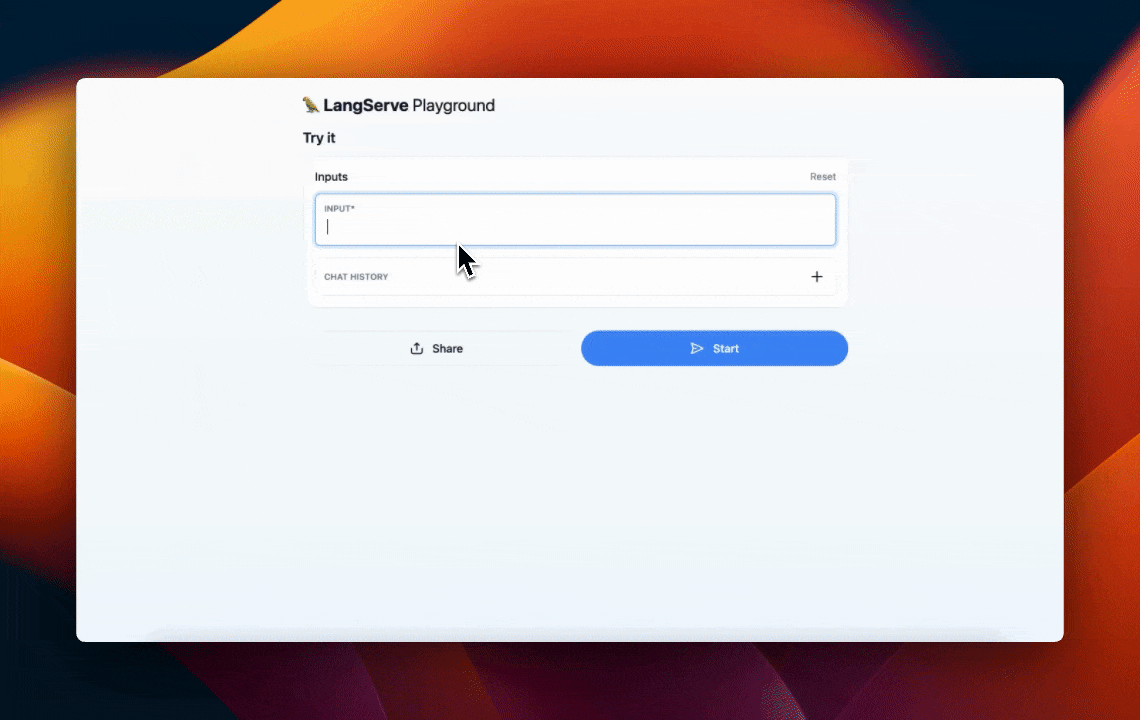|
|
||
|---|---|---|
| .. | ||
| openai_functions_agent | ||
| static | ||
| tests | ||
| .gitignore | ||
| LICENSE | ||
| main.py | ||
| pyproject.toml | ||
| README.md | ||
OpenAI Functions Agent - Gmail
Ever struggled to reach inbox zero?
Using this template, you can create and customize your very own AI assistant to manage your Gmail account. Using the default Gmail tools, it can read, search through, and draft emails to respond on your behalf. It also has access to a Tavily search engine so it can search for relevant information about any topics or people in the email thread before writing, ensuring the drafts include all the relevant information needed to sound well-informed.
The details
This assistant uses OpenAI's function calling support to reliably select and invoke the tools you've provided
This template also imports directly from langchain-core and langchain-community where appropriate. We have restructured LangChain to let you select the specific integrations needed for your use case. While you can still import from langchain (we are making this transition backwards-compatible), we have separated the homes of most of the classes to reflect ownership and to make your dependency lists lighter. Most of the integrations you need can be found in the langchain-community package, and if you are just using the core expression language API's, you can even build solely based on langchain-core.
Environment Setup
The following environment variables need to be set:
Set the OPENAI_API_KEY environment variable to access the OpenAI models.
Set the TAVILY_API_KEY environment variable to access Tavily search.
Create a credentials.json file containing your OAuth client ID from Gmail. To customize authentication, see the Customize Auth section below.
Note: The first time you run this app, it will force you to go through a user authentication flow.
(Optional): Set GMAIL_AGENT_ENABLE_SEND to true (or modify the agent.py file in this template) to give it access to the "Send" tool. This will give your assistant permissions to send emails on your behalf without your explicit review, which is not recommended.
Usage
To use this package, you should first have the LangChain CLI installed:
pip install -U langchain-cli
To create a new LangChain project and install this as the only package, you can do:
langchain app new my-app --package openai-functions-agent-gmail
If you want to add this to an existing project, you can just run:
langchain app add openai-functions-agent-gmail
And add the following code to your server.py file:
from openai_functions_agent import agent_executor as openai_functions_agent_chain
add_routes(app, openai_functions_agent_chain, path="/openai-functions-agent-gmail")
(Optional) Let's now configure LangSmith. LangSmith will help us trace, monitor and debug LangChain applications. You can sign up for LangSmith here. If you don't have access, you can skip this section
export LANGCHAIN_TRACING_V2=true
export LANGCHAIN_API_KEY=<your-api-key>
export LANGCHAIN_PROJECT=<your-project> # if not specified, defaults to "default"
If you are inside this directory, then you can spin up a LangServe instance directly by:
langchain serve
This will start the FastAPI app with a server is running locally at http://localhost:8000
We can see all templates at http://127.0.0.1:8000/docs We can access the playground at http://127.0.0.1:8000/openai-functions-agent-gmail/playground
We can access the template from code with:
from langserve.client import RemoteRunnable
runnable = RemoteRunnable("http://localhost:8000/openai-functions-agent-gmail")
Customize Auth
from langchain_community.tools.gmail.utils import build_resource_service, get_gmail_credentials
# Can review scopes here https://developers.google.com/gmail/api/auth/scopes
# For instance, readonly scope is 'https://www.googleapis.com/auth/gmail.readonly'
credentials = get_gmail_credentials(
token_file="token.json",
scopes=["https://mail.google.com/"],
client_secrets_file="credentials.json",
)
api_resource = build_resource_service(credentials=credentials)
toolkit = GmailToolkit(api_resource=api_resource)
